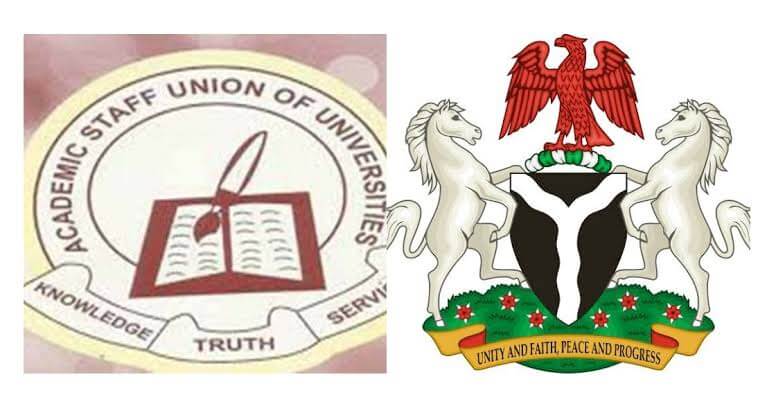Labake IDOWU
Members of the Academic Staff Union of Universities (ASUU) who have been on strike for over seven months, have been ordered to go back to work by the National Industrial Court on Wednesday.
The Federal Government in a suit, prayed for the order for ASUU to call off its seven months strike.
The Minister of Labour and Employment on behalf of the Federal Government had filed the matter before the court by way of referral to resolve the issue of the ongoing strike by ASUU.Mr J.U.K Igwe, SAN, counsel to FG in his submission had informed the court that the application for the injunction was dated Sept. 12 and filed same date.
He added that the application was brought in pursuant to the rules of the NICN 2017 proceeding.
Igwe further stated that it was predicated on 11 ground, supported by 21 paragraph affidavit deposed to Mr Okechukwu Wampa, a Legal Adviser in the Ministry of Labour and Employment , attached with three exhibits and an undertaking as to damages deposed to by Wampa.
He also urged the court to grant the prayer sought and proceeded to adopt in its entirety and totality the written address, adding that the claimants had met all the requirements to enable the court grant the injunction.
He cited that claimant’s action was not apprehensive and regarding damages, he said the lost time of seven months of the strike could not be regained.
He concluded by saying that going by the provision of section 18 (1) (e) of the Trade Disputes Act 2004, that a worker should not embark on strike when a matter is already before the court, urged the court to grant the injunction.
Mr Femi Falana SAN, counsel to the defendant stated that he had before the court a nine paragraph counter-affidavit filed on Sept. 16 deposed to by the president of ASUU.
Falana further submitted that attached to the affidavit was eight exhibits accompanied by a written address and proceeded to adopt same as their argument in opposition to the interlocutory injunction.
In addition, Falana argued that the minister lacked the power to order the court in the referral to direct ASUU to call off its strike.
He averred further that once a referral was before a court, no party could go outside of it.
Falana in his argument also pointed out that the claimants did not follow due process in part 1 of TDA 2004 that stipulated that only an individual has the right to approach the court as a trade union will first need to go to Industrial Arbitration Panel ( IAP), before coming to the court.
He said union can only approach the NICN to appeal the decision of IAP
Falana also said that the letter that accompanied the referral had the name of the Attorney-General as a party in the suit, but that however, the application filed before the court was without the name.
He also said that the referral asking for accelerated hearing was not necessary as there was not urgency in the matter as the strike had lasted for seven months
He also submitted that the balance of convenience was not on the side of the claimants and that the conducts of the claimants in the prayer for the court to interpret the 2009 Agreement should be discountenanced.
He finally urged the court to dismiss the application or direct parties to the IAP.
Meanwhile, the National Association of Nigerian Students has faulted the court judgement mandated the Academic Staff Union of Universities to call of its 7 month strike.
In a statement, NANS National Public Relations Officer, Giwa Temitope, said the judgement betrays equity.
Temitope explained that rather than direct ASUU to return to classroom, the court should have ordered the Federal Government to sort the striking lecturers.
According to the students union, the fact that they had to drag ASUU to court is a signal that this government cannot handle crisis.
The statement read, “Our attention has been drawn to a news of a court judgment mandating the Academic Staff Union of Universities (ASUU) to call of its 7 month strike. As an association, we feel disturbed to read the news of the judgment because we believe that it betrays equity.
“Ordinarily, the Federal Government is not meant to have dragged ASUU to court. But, the fact that they had to drag ASUU to court is a signal that this government cannot handle crisis. And, we want to state categorically that the court cannot force members of ASUU back to lecture theatres.
“And, as it stands today, with that court judgment, we maintain that the court has not resolved the problem and we reject the judgment in strong terms. The court could have said that the Federal Government should go and pay rather than say that lecturers who are on strike should go back to classrooms. We were expecting the court to have understood that lecturers are on contract of personal service hence, they cannot be compelled to render a service they don’t want to render.
“The only remedy to this strike action is for the Federal Government to accede to the demands of ASUU which the government willingly entered into with them and properly fund education.”








Comments